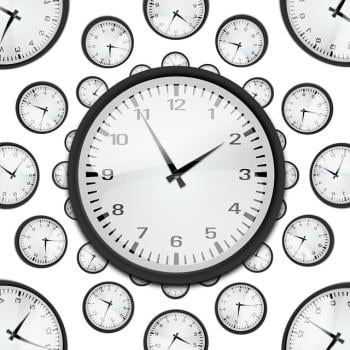Lectionary Reflections on Matthew 18:21-35
Sunday, September 11, 2011
It seems like an uncanny coincidence that this parable about radical forgiveness is the lectionary text for September 11. We might prefer an eye for an eye and a tooth for a tooth. But, no, we get the parable of the unforgiving servant. It comes right after the provision for excommunication in 18:15-20. We might have preferred that text for this week. But, instead, Peter has to set us up with his mathematical question, "Lord, if another member of the church sins against me, how often should I forgive?" Even all these years later, the wound is still raw, and the preferred question for many would be, "Lord, if someone or some group, causes destruction and death to my loved ones, my fellow citizens, in my backyard, why do I even need to forgive once?"
This would be an inauspicious enough choice of text if it just said, "Forgive because it's the right thing to do." But no, it has to end by pointing up the consequences of not forgiving for the one who refuses to forgive (18:35). I know there are preachers who don't use the lectionary in crises and on other occasions when they feel a need for more freedom of textual choice. It would be tempting to make 9/11 one of those occasions. Preacher's choice might yield a text that would be less uncanny and maybe less uncomfortable than the parable of the unforgiving servant on 9/11. But, as the saying goes, "it is what it is."
So let's talk about what it is. This parable is unique to Matthew. It is about forgiveness, but with a typical Matthew ending in which someone has to pay. A good way to get into the meaning of a parable is to ask what we wish it said instead of what it says. I would prefer a more positive version of this parable about forgiveness with theme music in a major key and a positive ending. My parable would go like this: A master forgives a servant's debt. The servant then goes out and sees another servant who owes him money. The second servant falls on his knees in front of the first and begs for forgiveness. Then there is a touching moment, when the first servant reaches out his hand and lifts the second servant to his feet and says something like, "Since I have just come from being forgiven by the king, how could I do anything but forgive you?" The second servant rejoices and goes and spreads the news. The news of the first servant's merciful behavior reaches the ears of the king. The first servant gets a promotion and then there is a party.
Maybe I would even have the king forgive all the debts of all his servants. But I have gotten carried away by my imaginings and forgotten where I am. I am in the gospel of Matthew, not Luke.
All of the parables unique to Matthew, except for the brief analogies of the treasure, the pearl and the fishnet, end with someone's downfall, while the minor key theme song of judgment plays in the background (Duke, 49). So the unforgiving servant in this parable ends up being tortured in a dungeon (18:34). The weeds get thrown into a furnace of fire (13:42); the laborer who dared to complain about his wages is sent packing (20:14); the son who didn't go to the fields is eventually excluded from the kingdom (21:32), and those who did not see Jesus in the destitute go away into eternal punishment (25:46).
Now it is time for personal confession. I rolled through a red light several months ago and was stopped by a police officer and given a ticket. You will be pleased to hear that your author was very polite to the officer. I was then given the mandatory opportunity to attend "red light school" at the township building one evening. So there I sat with 20 or 30 of my fellow citizens, now labeled "red light runners." The 2 hour program began, as you would expect, with a slideshow of cars destroyed by red light runners, slides of people hurt and even killed by red light runners and statistics to last a lifetime. Flashing before us for a full half an hour were images of the consequences of our actions. I must admit, that, as weary as I sometimes get of Matthew's repeated pictures of judgment, I do scrupulously stop at yellow lights now.
Matthew must have thought that his congregation needed a warning label affixed to parables, a warning of the consequences of merely doing their religion lip service, of being hearers but not doers. A crucial expression of our obedience to Jesus' teachings is not to judge ourselves superior to others (7:1-5; 18:1-5) on the basis of our religious heritage or observances. The parable of the weeds, another parable unique to Matthew among the four canonical gospels, (Matthew 13:24-30; Gospel of Thomas 57), shows us that he believed the present time is a time of grace in which God allows weeds and wheat to grow together and it is God's to judge which is which. So we are not to judge one another, but we are to live aware of the winnowing that is to come at God's hands. The presence of forgiveness in our lives is an important criterion on which our obedience will be judged when the time comes. We are not to roll judgmentally down the road of life, but we are to stop when necessary, to take stock of our own sins and to extend the same forgiveness we have received to others. Mathew emphasizes that the one who teaches us this lesson on forgiveness is the Son of God, who has promised to be with us to the end of the age (28:20). Therefore, we are not being asked to summon this forgiveness apart from the presence of Jesus, but summon it we must.





